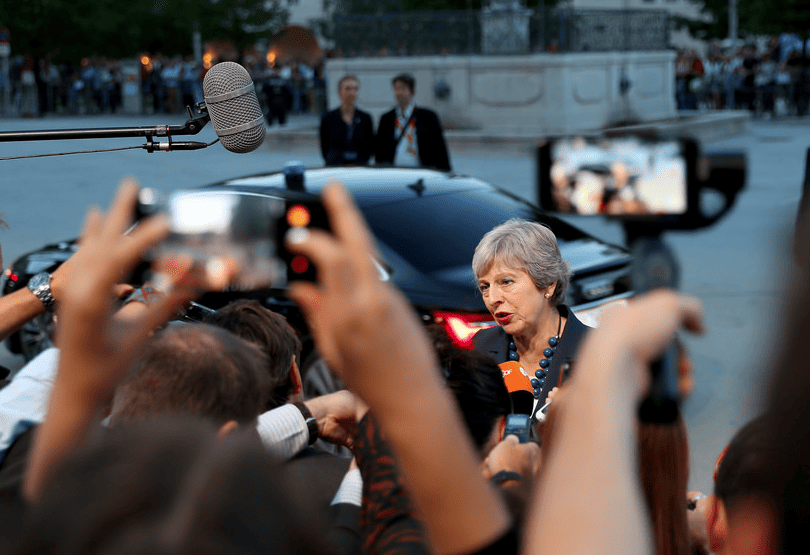The UK government suggested just days ago that re-opening negotiations on the Brexit withdrawal could lead to a worse outcome, but Theresa May has done just that in order to avoid defeat in the Commons’ ‘meaningful vote’.
The Prime Minister told MPs yesterday that the vote would be delayed in the hope of tweaking the ‘backstop’ element intended to avoid a hard Irish border, after days of insisting that it would go ahead today as planned. She has now flown to Brussels to meet EU27 leaders and EU civil servants to try to rescue the deal.
The delay was met with indignation from MPs on both sides of the House, who had spent three of five allocated days debating the deal as it stands, and earned the government a strong rebuke from Speaker John Bercow who said that the move was “deeply discourteous.”
May faced a barrage of questions and criticism from MPs incensed by the delay, along with repeated calls to return the matter to the people to decide whether to press ahead with her deal, opt for no deal or abandon Brexit altogether.

Theresa May at an EU summit earlier this year. She has returned to the continent today for further talks – though no substantial changes to the deal are expected
In the meantime, EU President Donald Tusk and Irish Taoiseach Leo Varadkar have both reiterated that the deal will not be re-negotiated, although Tusk said “we are ready to discuss how to facilitate UK ratification.”
For pharma (and many other UK industries) the fear of a no-deal scenario is looming ever-larger. The chief executive of the Association of the British Pharma Industry (ABPI), Mike Thompson, said once again that no-deal “would present very serious challenges and this must be avoided.”
“Politicians need to find a way through the current impasse and reassure patients that medicines will not be delayed or disrupted come March 2019,” he added.
The pharma industry was one of those namechecked by May yesterday as she responded to questions about the preparations that have been made in the last few weeks for a ‘no-deal’ scenario. The PM said referenced a new letter to pharma companies sent last week to update them on progress made on human medicines supply if the UK crashes out of the EU next March.
The letter from health minister Matt Hancock – which suggested there could be disruption of up to six months at Dover – was however met with frustration by the ABPI and BioIndustry Association (BIA), which insisted they been warning the government for months that it needs to do more to minimise any disruption.
While the letter references alternative supply routes, the lack of detail on these is causing anxiety in the sector.

Mike Thompson: industry wants further guidance on how medicines will be priorities
“The focus of pharmaceutical companies is on making sure that medicines and vaccines get to patients whatever the Brexit outcome,” said Thompson, adding that the industry is now looking for “further guidance on how medicines will be prioritised as new supply routes are put in place.”
The BIA’s CEO Steve Steve Bates, also warned that a no deal would result in “the biggest dis-integration of the complex regulated medicines market across Europe in terms of regulation, cross border movement of goods, comparative pricing and intellectual property.”
On a slightly happier note, Bates did welcome a long-awaited policy paper on the rights of EU citizens living in the UK if no deal is reached. It has now been confirmed they will have until the end of 2020 to apply for ‘settled status’ under a scheme that is expected to go live in the New Year.




